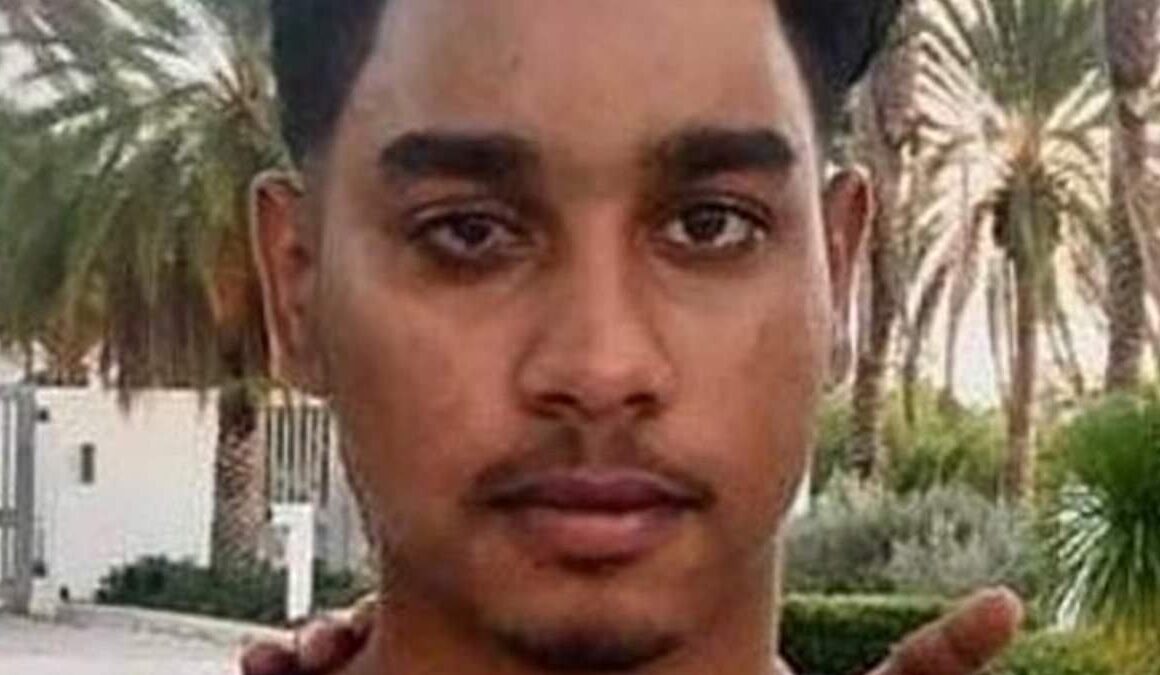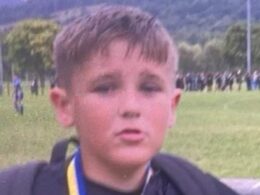The youngest murderers in Britain since James Bulger‘s killers can never be named because it would impact on their welfare, a judge has ruled.
Two 12-year-old boys are facing mandatory life sentences after murdering a stranger in a brutal machete attack in November last year.
However, High Court judge Mrs Justice Tipples yesterday rejected a media application to name the pair, stating the welfare of the youths outweighed the wider public interest and open justice principles.
The killers, both from Wolverhampton, were found guilty in June of murdering 19-year-old Shawn Seesahai, who was stabbed in the heart and suffered a skull fracture during an attack on the city’s Stowlawn playing fields on November 13.

Shawn Seesahai, 19, who was unknown to the defendants, was hacked to death in a brutal attack at Stowlawn playing fields in Wolverhampton


Jon Venables and Robert Thompson became the youngest people to be convicted of murder after they tortured and killed two-year-old James Bulger in 1993, aged just ten
The youths are believed to be the youngest defendants convicted of murder in Britain since Robert Thompson and Jon Venables, both aged 11, were found guilty in 1993 of killing two-year-old James Bulger.
Four media organiations, including the PA news agency, had argued that the defendants, one now aged 13, should lose anonymity granted by an order under the Youth Justice and Criminal Evidence Act.
But Mrs Justice Tipples, sitting at Nottingham Crown Court, said she had accepted evidence contained in pre-sentence reports that naming the boys would have a detrimental impact on their welfare.
The judge, who heard that the victim’s family believe the boys should be named, told the court the facts of the killing – which ‘took place in not much more than a minute’ – were ‘of course shocking, particularly given the very young age of the defendants’.
As part of her ruling, the judge accepted evidence from social workers that one of the defendants was vulnerable, had ‘extremely complex needs’ and that identifying him would have ‘an extremely detrimental impact on his mental health’.
The judge also accepted a statement in a pre-sentence report which said naming the other youth was likely to increase the likelihood of negative attention within the custodial setting.

This is the haunting photo of a 12-year-old killer posing with a huge machete tucked into his trousers on the day he hacked teenager Shawn Seesahai to death
Following the judgment, Jude Bunting KC, representing three of the media organisations, said an appeal against the ruling in a higher court was unlikely.
Addressing the court on Monday, Mr Bunting submitted that the murder was within a category identified during a previous case as having a high public interest.
He told the court: 'This point is squarely present in this case, which has attracted local concern and national revulsion.
'We are in the realm of knife crime, which is an issue of substantial public interest.'
Naming the boys would also enable the media to investigate the possibility of institutional failures, Mr Bunting asserted.
Defence counsel Rachel Brand KC and Paul Lewis KC both opposed the media application to lift the restriction on identifying the boys.
Ms Brand said the welfare of the boy who is still 12 - who bleached and hid the machete after Mr Seesahai’s murder - should be given a 'heavier consideration' than public interest factors.

The trial heard that Mr Seesahai was with a friend at the time when he was brutally attacked after 'exchanging words' with one of the 12-year-olds near a park bench
Mr Lewis, representing the boy who has turned 13 since his conviction, urged the court to focus on the facts of Mr Seesahai’s killing rather than 'siren calls' relating to abstract principles from previous cases.
'How does naming two 12-year-olds better inform public debate?' Mr Lewis asked. 'There is no evidence that to name two 12-year-olds would provide any deterrent.'
Neither of the youths attended Wednesday’s hearing, but the younger of them was present to hear part of Monday’s legal submissions.
The boys’ trial was told Mr Seesahai, who was with a friend, was brutally attacked after 'exchanging words' with one of them near a park bench.
Jurors heard the youth who has yet to turn 13 had an obsession with knives - even posing for a picture with the machete, which had a 42.5cm-long blade, hours before he committed murder.
In social media exchanges involving his co-defendant and a girl witness who later attended a police station with her mother to make a statement, the boy said of the stabbing: 'It is what it is.'
He also wrote that he was not scared and added 'idrc' - text message shorthand for 'I don’t really care.'
The youths are due to be sentenced on September 26 and 27.







